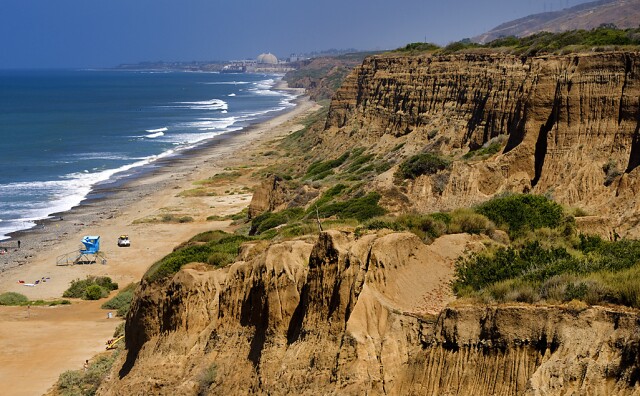On Being Black In LA: Erasure Of The Black Community That Once Was

The theme of LAist's Black History Month coverage this year is: “What does it mean to be Black in L.A.?” We'll publish reponses from community members and staff throughout the month. Add your voice to the conversation below.
Yesterday, a woman who grew up in the San Fernando Valley shared her experiences with code switching. Today, we share the first of several responses from our own Black staff members.
Velincia Ellis has been a financial analyst with KPCC since 1996, and in public radio for 25 years. Just as she's observed changes in the media landscape, she's seen her South L.A. neighborhood and Black community change, and most devastatingly, disappear. She writes, "What happened? Where did my people go?"
"I am a homegrown South L.A. resident. A long time ago, being Black in my community meant togetherness, happiness, joy, prosperity, and love for one another. It also meant some hardships and despair. I saw crack cocaine invade our way of life. It tore families apart with no hope for recovery. I saw numerous gangs kill us for no other reason than to be accepted in a gang.
"Moving forward now.
"I see Black families still struggling after the Rodney King riots. I've seen buildings burned to the ground and rebuilt, but not by us — Black folks.
"I see older Blacks losing their homes to death or foreclosure and resold to non-Blacks. And, I wonder: What happened? Where did my people go?
"While there are some community-based organizations that represent Black and Brown (I belong to one), on the whole, I feel like there is no meaningful representation for Black-owned businesses or drivers for our economic growth. But for “others” in my community, there is representation and prosperity, even.
"When I go to department stores, grocery stores, etc. I don't see myself, my people, and it’s so disheartening. Where are we?
"Yet, I still hope for a better future for our brothers and sisters still working toward that American Dream, for that nostalgic iconography of apple pie and hot dogs. When I was growing up, I didn't have an American Dream to strive for. I just had hope."
— Velincia, South L.A.
MORE ON BEING BLACK IN LA
On Being Black In LA: Code Switching To Survive Crossing Racial Lines
- On Being Black In LA: Being Bused Across Town Opened Up City As 'A Place Of Possibilities'
MORE FROM RACE IN LA
The 8%: Exploring The Inextricable Ties Between L.A. And Its Black Residents
- Racism 101: Facilitating Deeper Conversations On Race
Race In LA: How Does Your Race Or Ethnicity Shape Your Life?
The first installment of our The 8 Percent project began exploring the inextricable ties between L.A. and its Black residents — how Black migration, community and culture have shaped and changed L.A. For Black History Month, we’re homing in on a more specific experience — yours. Tell us: What does it mean to you to be Black in L.A.?
Our news is free on LAist. To make sure you get our coverage: Sign up for our daily newsletters. To support our nonprofit public service journalism: Donate Now.
-
The severe lack of family friendly housing has millennial parents asking: Is leaving Southern California our only option?
-
As the March 5 primary draws closer, many of us have yet to vote and are looking for some help. We hope you start with our Voter Game Plan. Since we don't do recommendations, we've also put together a list of other popular voting guides.
-
The state's parks department is working with stakeholders, including the military, to rebuild the San Onofre road, but no timeline has been given.
-
Built in 1951, the glass-walled chapel is one of L.A.’s few national historic landmarks. This isn’t the first time it has been damaged by landslides.
-
The city passed a law against harassing renters in 2021. But tenant advocates say enforcement has been lacking.
-
After the luxury towers' developer did not respond to a request from the city to step in, the money will go to fence off the towers, provide security and remove graffiti on the towers.






